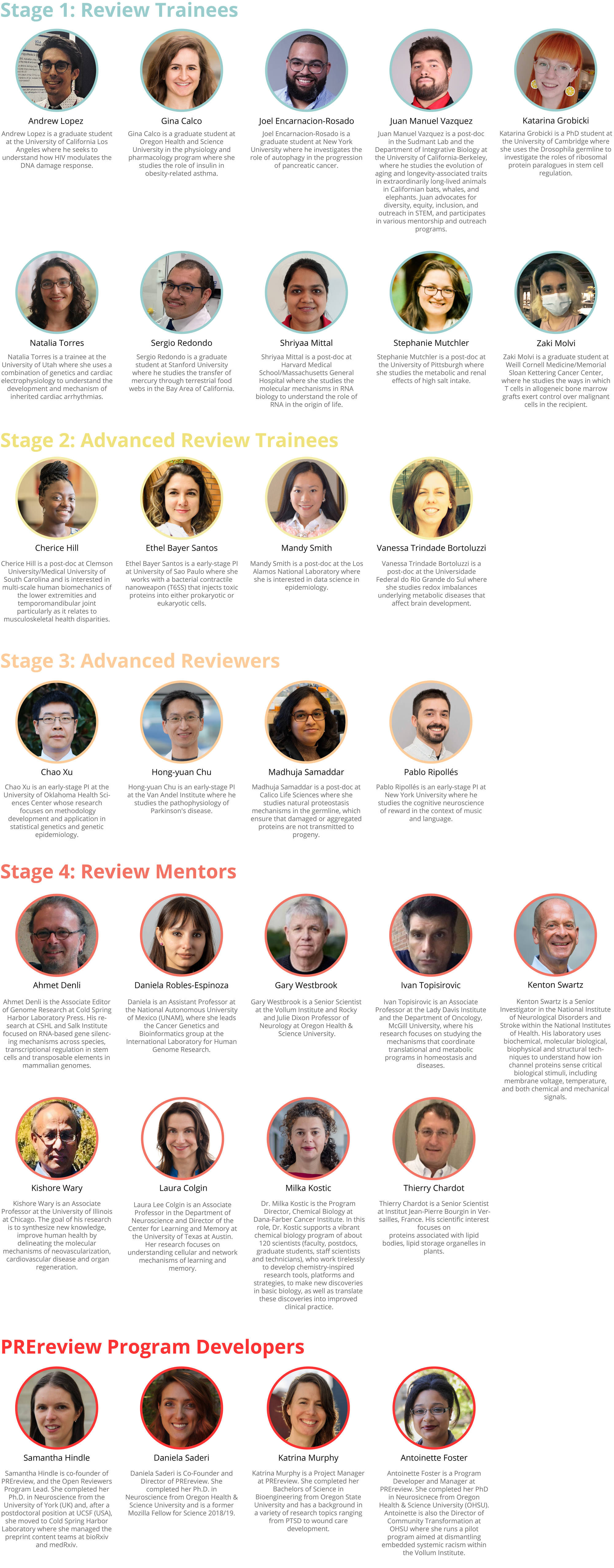PREreview Open Reviewers is a peer review mentoring program that empowers early-career researchers (ECRs) to contribute to scholarly peer review, centering issues of equity, diversity, and inclusion. The pilot started in October 2020, and will continue through the summer of 2021. The program is supported by eLife and the Mozilla Foundation, and developed by Antoinette Foster, Samantha Hindle, Katrina Murphy, and Daniela Saderi.
Why our participants think this program matters
“Inexperience is the greatest barrier to gaining experience [in peer review]. Not only do I not know where to start, I also do not know how to get there. Furthermore, the only advice I have ever received on the topic has been "Don't do it. It's a waste of time that doesn't contribute to your career", which epitomizes the core problems.”
“I would love to gain experience with the peer-review process in a more organized way. I love that this program has a focus on understanding and addressing our biases as well as increasing the diversity of people who provide reviews.”
“The main challenge I have experienced is not being asked to do reviews. I have found education on how to write peer reviews is nonexistent in PhD training, and most information on how to write peer reviews I have learned from internet searches.”
Structure of the program
The PREreview Open Reviewers program is designed to support ECRs through a path of guided learning to build their profile as socially-conscious, constructive peer reviewers, and equip them with the skills to become mentors themselves. This framework is designed after the Mozilla Open Leaders program, and has the potential to impact hundreds of researchers over a relatively short amount of time.
The pilot defines four "Stages of Engagement", the first two of which are mentees, and the last two of which are mentors. The program can be entered by a researcher at any stage depending on their experience with writing manuscript reviews. To allow for different levels and paces of engagement, the program has a 14-week cohort-based component involving stage 1 and stage 4 participants, and a 8-month self-guided component involving stage 2 and stage 3 participants. To learn more about the program’s structure, please visit our Program page.
One of the goals of our program is to make its materials available to research communities so that it can be adapted to different disciplines and cultural contexts. All resources produced in this pilot will be made available under CC-BY 4.0 license and shared openly online for anyone to adapt, use, and reuse.
Meet our Awesome 2020 Pilot Cohort!
